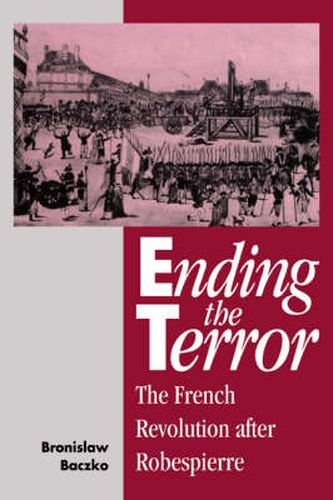Readings Newsletter
Become a Readings Member to make your shopping experience even easier.
Sign in or sign up for free!
You’re not far away from qualifying for FREE standard shipping within Australia
You’ve qualified for FREE standard shipping within Australia
The cart is loading…






Ending the Terror makes accessible for the first time to an English-speaking readership a major revisionist assessment of a crucial moment in the history of the French Revolution. The months that followed the fall of Robespierre in July 1794 mark not only a turning point in the history of the Revolution: ‘Thermidor’ is also a symbolic moment which came to haunt the subsequent revolutions of the nineteenth and twentieth centuries. By this date the Terror as a system of power was discredited, and the engineers of the Terror were confronting the problem of how to dismantle it without repudiating the aims of the Revolution itself and its work. Professor Baczko analyses the Terror in detail through the political history of the French National Assembly, and also looks at the broader issues of the political culture of Revolutionary France.
$9.00 standard shipping within Australia
FREE standard shipping within Australia for orders over $100.00
Express & International shipping calculated at checkout
Ending the Terror makes accessible for the first time to an English-speaking readership a major revisionist assessment of a crucial moment in the history of the French Revolution. The months that followed the fall of Robespierre in July 1794 mark not only a turning point in the history of the Revolution: ‘Thermidor’ is also a symbolic moment which came to haunt the subsequent revolutions of the nineteenth and twentieth centuries. By this date the Terror as a system of power was discredited, and the engineers of the Terror were confronting the problem of how to dismantle it without repudiating the aims of the Revolution itself and its work. Professor Baczko analyses the Terror in detail through the political history of the French National Assembly, and also looks at the broader issues of the political culture of Revolutionary France.